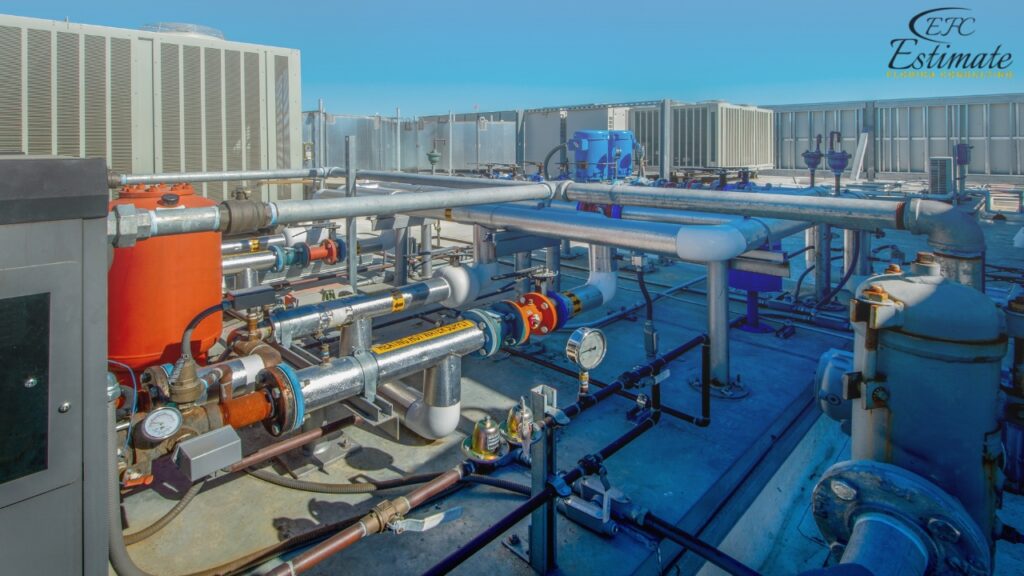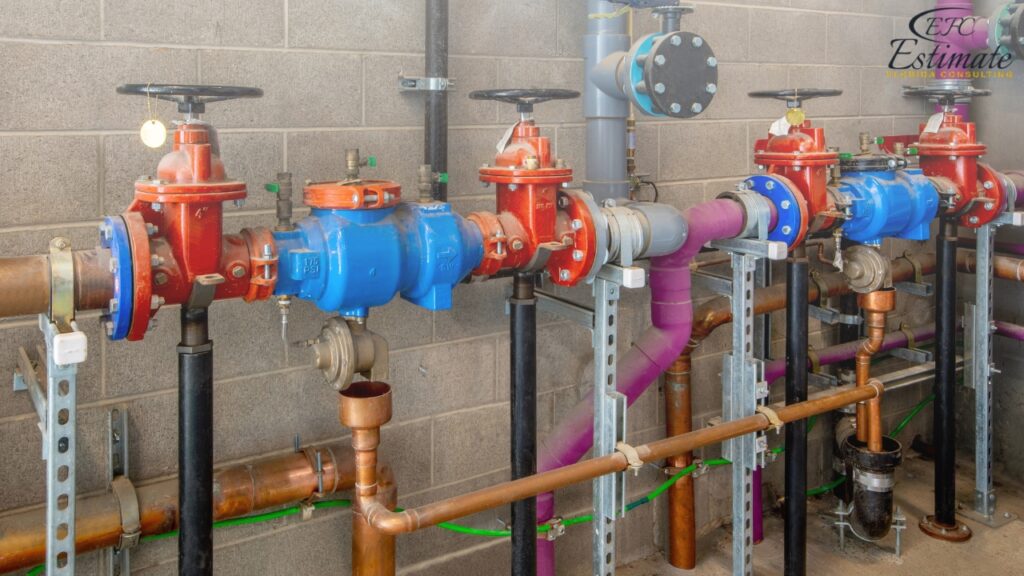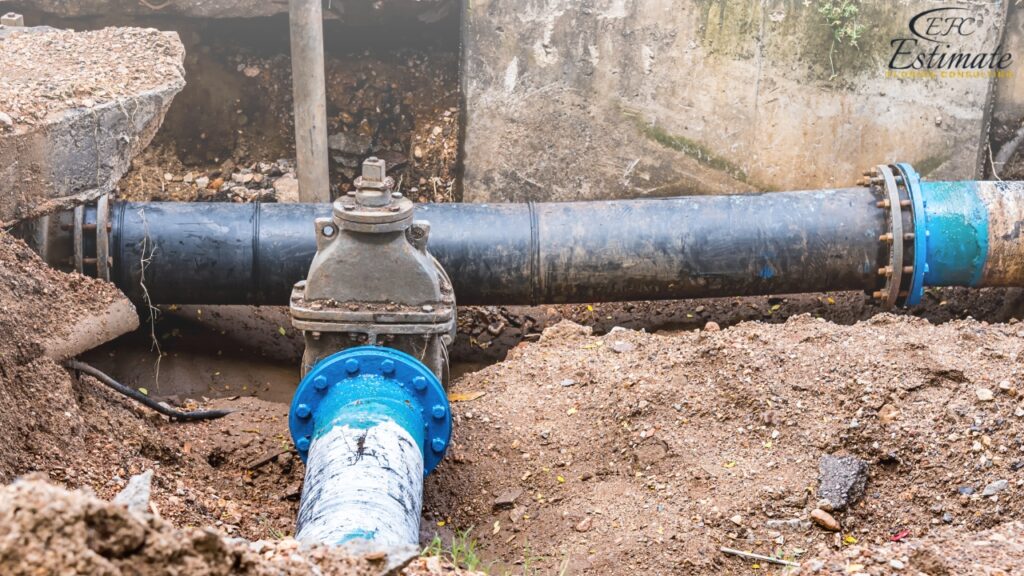How Much Does It Cost To Run Water To A Property?
Running water to a property incurs various costs depending on factors like location and chosen water system. For municipal connections, costs typically include connection fees averaging $1,300 to $6,500, meter installation at $650 to $1,950, and excavation costs ranging from $2,600 to $10,400. Alternatively, installing a private well involves drilling expenses averaging $6,500 to $19,500, pump installation at $1,300 to $3,900, and water quality testing costing around $260 to $650. Additional considerations such as landscaping restoration, water treatment systems, and ongoing maintenance further impact total expenses.

Costs vary widely based on geographical factors, regulatory requirements, and project complexity, necessitating careful planning and budgeting for property owners seeking reliable water access.
Factors Affecting Cost
Several factors contribute to the overall cost of running water to a property:
Distance from Main Supply Lines
The proximity of the property to existing municipal water lines or natural water sources significantly influences costs. Properties located farther from main supply lines may incur higher expenses due to the need for extensive piping or drilling to connect to the water source. Factors such as terrain, soil conditions, and accessibility affect the complexity of installation and subsequent costs.
Type of Terrain
Geographical characteristics such as soil composition, rockiness, and elevation impact installation costs. Properties with rocky terrain or steep slopes may require specialized equipment and techniques for excavation and trenching, leading to increased labor and material expenses. Understanding the terrain-specific challenges helps property owners anticipate additional costs and plan accordingly.
Municipal Regulations
Local ordinances and permitting requirements vary by region and affect project timelines and costs. Obtaining permits for water supply installations involves navigating regulatory processes, conducting environmental assessments, and ensuring compliance with building codes. Costs associated with permits, inspections, and environmental studies should be factored into the project budget to avoid delays and penalties.
Initial Planning and Permits
Before commencing a water supply project, thorough planning and regulatory approvals are essential:
- Site Assessment and Feasibility Study: Conducting a comprehensive site assessment evaluates the feasibility of connecting to municipal water systems or installing a private well. Factors such as water table depth, groundwater quality, and geological conditions inform the selection of the most cost-effective water supply solution.

- Permit Acquisition Process: Securing permits involves submitting detailed project plans, environmental impact assessments, and compliance documents to local authorities. Costs associated with permit application fees, legal consultations, and regulatory compliance should be budgeted from the outset to streamline project approval and execution.
Types of Water Systems
Property owners have two primary options for establishing a water supply:
Municipal Connection
Connecting to a municipal water supply network involves specific costs and considerations:
Cost Item | Average Cost Range |
Connection Fees | $1,300 – $6,500 |
Meter Installation | $650 – $1,950 |
Excavation and Trenching | $2,600 – $10,400 |
- Connection Fees: Municipalities charge one-time connection fees based on the property’s distance from the nearest water main and the required pipe size. Fees cover administrative costs, infrastructure use, and initial setup.
- Meter Installation: Installing a water meter is necessary for accurately measuring water usage and billing. Costs vary based on meter type, installation complexity, and plumbing requirements.
- Excavation and Trenching: Costs associated with digging trenches and laying underground pipes from the water main to the property. Factors influencing costs include soil conditions, depth of excavation, and obstacles encountered during trenching.
Get 5 New Leads Next 7Days With Our System
- Multi-Family Building
- Hotel Building
- Hospital Building
- Warehouse Building
- High-Rise Building
- Shopping Complex
Private Well Installation
Installing a private well requires the following expenditures:
Cost Item | Average Cost Range |
Drilling and Equipment | $6,500 – $19,500 |
Pump Installation | $1,300 – $3,900 |
Water Quality Testing | $260 – $650 |
- Drilling and Equipment Costs: The primary expense includes drilling depth, equipment rental, and labor costs. Geological surveys and soil tests inform the depth and location of well drilling to access groundwater sources efficiently.
- Pump Installation: Installing a pump system to extract water from the well and distribute it throughout the property’s plumbing system. Costs vary based on pump capacity, depth of the well, and electrical requirements.
- Water Quality Testing: Essential to ensure the well water meets health and safety standards before consumption. Testing includes analysis for contaminants such as bacteria, minerals, and chemicals to determine the need for filtration or treatment systems.
Additional Costs to Consider
Beyond initial installation expenses, property owners should budget for ongoing and unforeseen costs:
- Water Treatment Systems: Depending on water quality, costs range from $1,300 to $6,500 for installing filtration or purification systems to improve water taste and purity.
- Landscaping Restoration: Costs associated with repairing and restoring landscaping disrupted during excavation and trenching activities. Landscaping costs vary based on property size, terrain complexity, and restoration requirements.
- Maintenance Expenses: Annual maintenance costs for wells range from $130 to $650 and include regular inspections, pump servicing, and water quality testing. Budgeting for maintenance ensures long-term reliability and efficiency of the water supply system.
Comparing Costs in Different Regions
Cost disparities exist between urban and rural areas due to variations in labor rates, material availability, and regulatory compliance. Property owners should research regional cost variations and consult with local contractors to obtain accurate estimates and compare competitive bids for water supply installations.
Choosing the Right Contractor
Selecting a qualified contractor experienced in water supply installations is critical for project success:
- Researching Local Contractors: Seek recommendations from neighbors, review online testimonials, and verify licenses and certifications. Choosing a reputable contractor ensures quality workmanship and adherence to industry standards.
- Obtaining Multiple Quotes: Request detailed proposals from multiple contractors to compare pricing, project timelines, and included services. Evaluate each contractor’s expertise, references, and willingness to provide comprehensive project details before making a selection.

Budgeting Tips
Effective budget planning involves strategic financial management and risk mitigation strategies:
- Contingency Planning: Allocate 10-20% of the total project budget for unforeseen expenses or changes in project scope. Contingency funds safeguard against unexpected costs and ensure the project remains on schedule.
- Financing Options: Explore financing options such as loans, grants, or municipal incentives available for water infrastructure projects. Some municipalities offer financial assistance or tax incentives for eco-friendly water solutions to promote sustainable development.
Environmental Considerations
Minimizing environmental impact and promoting sustainability are integral to responsible water supply installations:
- Sustainability Practices: Implement water conservation strategies such as rainwater harvesting or greywater recycling systems to reduce water consumption and support ecological balance.
- Impact on Local Ecosystems: Evaluate the environmental footprint of water supply installations on local flora and fauna. Adhering to environmental regulations and best practices preserves natural habitats and water resources for future generations.
Future Proofing Your Water Supply
Designing water systems with scalability and resilience ensures long-term reliability and cost-effectiveness:
- Expansion Capabilities: Plan for future property expansions or increased water demand by designing flexible water systems that accommodate growth without major infrastructure modifications.
- Upgrading Infrastructure: Schedule regular maintenance and periodic upgrades to improve system efficiency and lifespan. Upgrading components such as pumps, pipes, and filtration systems enhances water quality and reduces operational costs over time.
Download Template For Plumbing Project Breakdown
- Materials list updated to the zip code
- Fast delivery
- Data base of general contractors and sub-contractors
- Local estimators

Conclusion
Establishing a water supply to a property involves meticulous planning, budgeting, and adherence to regulatory requirements. By understanding the cost factors associated with municipal connections and private well installations, property owners can make informed decisions to ensure reliable access to water. Whether in urban or rural settings, evaluating environmental impacts and implementing sustainable practices contribute to long-term water supply solutions.
FAQs
Connection fees range from $1,300 to $6,500, depending on distance and pipe size requirements.
Private ells are typically drilled between 100 to 400 feet deep, depending on local geological conditions.
Yes, some municipalities and environmental agencies offer grants or incentives for eco-friendly water systems.
Annual maintenance costs for private wells range from $130 to $650, covering inspections and water quality testing.
Project timelines vary but can range from a few weeks to several months, depending on complexity and regulatory approvals.
Google Reviews



Process To Get It Cost To Run Water To A Property Estimate Report
Here I am going to share some steps to get it cost to run water to a property estimate report.
-
You need to send your plan to us.
You can send us your plan on info@estimatorflorida.com
-
You receive a quote for your project.
Before starting your project, we send you a quote for your service. That quote will have detailed information about your project. Here you will get information about the size, difficulty, complexity and bid date when determining pricing.
-
Get Estimate Report
Our team will takeoff and estimate your project. When we deliver you’ll receive a PDF and an Excel file of your estimate. We can also offer construction lead generation services for the jobs you’d like to pursue further.

